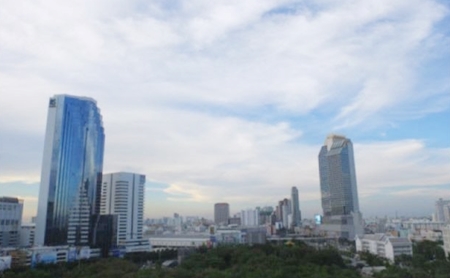The Thai economy in July showed signs of slight improvement compared to the previous month, despite an overall slowdown and falling exports, according to a senior Finance Ministry official.
Ekniti Nitithanprapas, deputy director general of the Fiscal Policy Office, said July exports rose by 1.5 per cent year-on-year but increased by 0.8 per cent month-on-month compared to June due to expansion in the electronics and fuel sectors in tandem with the strengthened US and European economies.

Regarding consumption in the private sector, he said revenue from value added tax (VAT) in July declined by 1.9 per cent year-on-year but VAT collections based on domestic consumption increased by 5.5 per cent year-on-year.
Commodity imports in July were higher by 9.0 per cent year-on-year while private investment in construction, based on property business, increased by 29.9 per cent year-on-year in July.
Private investment in machinery, based on imports of capital goods in July, dropped by 3.6 per cent year-on-year but expanded by 8.7 per cent compared to the preceding month.
Kulaya Tantitemit, executive director of the Macroeconomic Policy Bureau, said the economic indicators on Thailand’s supply in the industrial and agricultural sectors has slowed down but the tourism sector has expanded.
The manufacturing production index (MPI) in July dropped 4.5 per cent year-on-year and 0.4 per cent month-on-month compared to June, while raw material imports increased by 12.5 per cent year-on-year, reflecting a positive sign in the industrial sector, she said.
Ms Kulaya said the agricultural production index (API) in July shrank by 2.7 per cent year-on-year and 7.4 per cent month-on-month in accord with decreasing rice production partly due to drought.
On the brighter side, Thailand’s tourism expanded 22.5 per cent year-on-year, mainly from visits by Chinese, Malaysian and Singaporean tourists.
Mr Ekniti said there were signs that the Thai economy would become more lively in the third quarter. Thailand’s economic stability, both internal and external, remains solid given inflation and unemployment rates at 2.0 per cent/year and 0.5 per cent/year respectively.
The country’s foreign reserves are as high as US$172 billion – sufficient to cope with the global economic volatility — while the fiscal policy will be significant in stabilising the economy in the second half of the year, he said.




